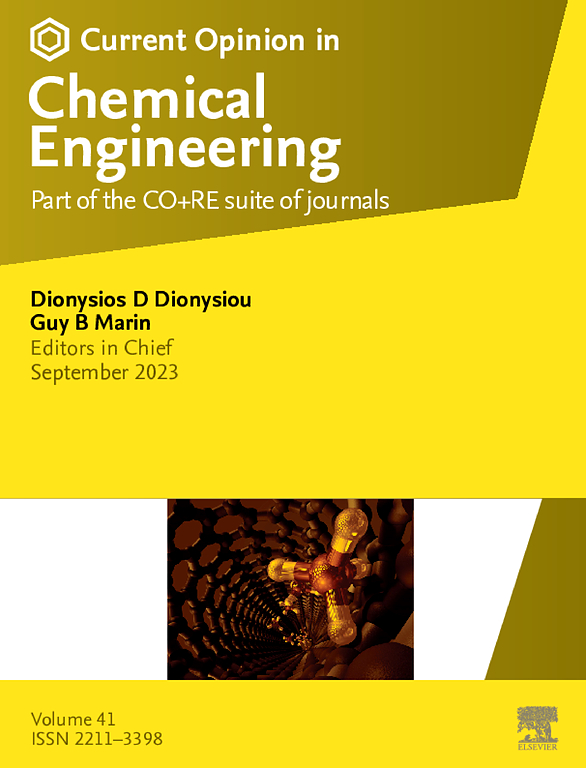HiGee process intensification in biorefineries: innovations, challenges, and outlook
IF 6.8
2区 工程技术
Q1 BIOTECHNOLOGY & APPLIED MICROBIOLOGY
引用次数: 0
Abstract
Biorefineries will play a crucial role in the circular and net-zero economies of the future. To enable these sustainable factories to thrive, it is essential to overcome processing challenges associated with streams complexity, variability, degree of dilution and stability of products, amongst others. Process intensification strategies based on centrifugal force fields or high gravity (HiGee) fields provide promising solutions for rapid heat and mass transfer in fast reactions and/or systems where mixing of fluids is challenging. The applications of HiGee intensification techniques to biorefining processes for oil and sugar solutions, multiphase systems using liquid–liquid or solid suspension streams and thermochemical processes amongst others are highlighted in this short review. The state of the art and the current technology successes and limitations are discussed, identifying key areas for future development and providing an outlook for industrial uptake.
生物炼制过程强化:创新、挑战与展望
生物精炼厂将在未来的循环经济和净零经济中发挥关键作用。为了使这些可持续工厂蓬勃发展,必须克服与溪流复杂性、可变性、稀释程度和产品稳定性等相关的处理挑战。基于离心力场或高重力(HiGee)场的过程强化策略为快速反应和/或流体混合具有挑战性的系统中的快速传热和传质提供了有希望的解决方案。在这篇简短的综述中,重点介绍了highee强化技术在油和糖溶液的生物精炼过程、使用液-液或固体悬浮流的多相系统以及热化学过程等方面的应用。讨论了目前的技术状况和当前技术的成功和局限性,确定了未来发展的关键领域,并提供了工业吸收的前景。
本文章由计算机程序翻译,如有差异,请以英文原文为准。
求助全文
约1分钟内获得全文
求助全文
来源期刊

Current Opinion in Chemical Engineering
BIOTECHNOLOGY & APPLIED MICROBIOLOGYENGINE-ENGINEERING, CHEMICAL
CiteScore
12.80
自引率
3.00%
发文量
114
期刊介绍:
Current Opinion in Chemical Engineering is devoted to bringing forth short and focused review articles written by experts on current advances in different areas of chemical engineering. Only invited review articles will be published.
The goals of each review article in Current Opinion in Chemical Engineering are:
1. To acquaint the reader/researcher with the most important recent papers in the given topic.
2. To provide the reader with the views/opinions of the expert in each topic.
The reviews are short (about 2500 words or 5-10 printed pages with figures) and serve as an invaluable source of information for researchers, teachers, professionals and students. The reviews also aim to stimulate exchange of ideas among experts.
Themed sections:
Each review will focus on particular aspects of one of the following themed sections of chemical engineering:
1. Nanotechnology
2. Energy and environmental engineering
3. Biotechnology and bioprocess engineering
4. Biological engineering (covering tissue engineering, regenerative medicine, drug delivery)
5. Separation engineering (covering membrane technologies, adsorbents, desalination, distillation etc.)
6. Materials engineering (covering biomaterials, inorganic especially ceramic materials, nanostructured materials).
7. Process systems engineering
8. Reaction engineering and catalysis.
 求助内容:
求助内容: 应助结果提醒方式:
应助结果提醒方式:


